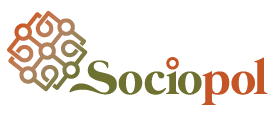“What on earth is a collective knowledge consultant“, you ask? Well, I bet we can answer that question together!
I have served as a consultant many times since 2004, and I have spent time with many other consultants. So I know that consultants loooove their clients, who are usually representatives of not-for-profit organizations or public institutions. I appreciate my clients because I am a curious person, and every client presents me with a question or problematic situation with an uncertain outcome. What luck: to not understand and to find oneself face to face with someone who, like me, wants to know more!
But it’s not just a matter of wanting to understand; the starting issue must be well formulated. To that end, I start by asking lots of questions. And I try to learn even from the silences. But I invent nothing: I make my clients work (yes!) so that, together, we can better identify the summits we have reached (“what we know we know”) and the peaks we have yet to scale (“what we know we don’t know). And sometimes, faced with confusing landscapes where the right path is not obvious (“what we don’t know we don’t know”), we manage to spot our destination on the horizon.
Then, gradually, we outline the conditions that will get us to our target destination. In general, these conditions involve planning, co-constructing, translating and sharing knowledge, or even changing our point of view on the value of what we’re trying to do. As a collective knowledge consultant, I can help you map out your route. I can also walk with you to sharpen your gaze and help you see your environment through different eyes.
It is worth remembering that the knowledge I work with is collective, meaning that it comes from multiple sources. It therefore includes more theoretical knowledge, but also soft skills and know-how. The term “collective” also recalls the fact that our goal is for citizens to be able to use this knowledge and to contribute, in however small a way, to greater social justice.
As you can see, I know a little something about my work. But we still have plenty to learn about how we can collectively better target the social changes we want to make and better mobilize the knowledge required to make them. Are you ready to help me?
What change would you like to contribute to? Have you met all the conditions to succeed?

